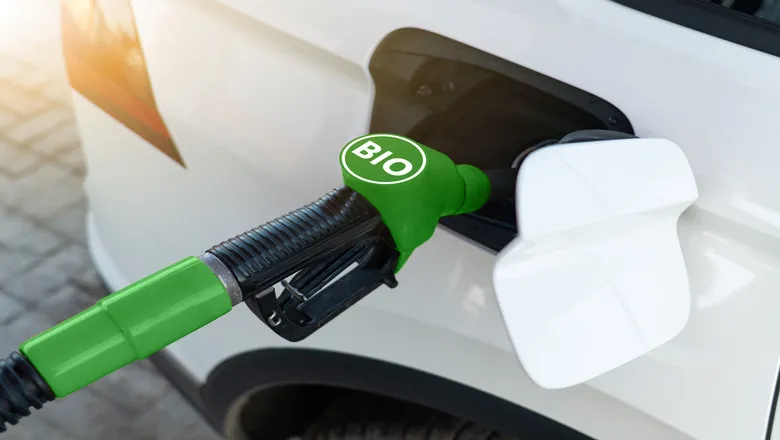What we’ve created is the chemical equivalent of the fossil fuels we’re using every day, meeting all the standards the chip shop fat of yesteryear could not.”
Dr Alex Brogan
06 December 2024
From chip shop to pit stop – scientists make cooking oil biofuel as efficient as diesel
The new method could help slash carbon emissions in hard to reach industries like aviation and road haulage.

A new way to produce fuels made from leftover fat can create biofuel as effective as diesel 1000-times more efficiently than current methods a new study has suggested.
Published in Green Chemistry, researchers from King’s College London and the Brazilian Biorenewables National Laboratory used enzymes to break down fatty acids in cooking oil into alkenes, the building block of fuels like petrol and diesel. The scientists hope that the new renewable fuel, which can be made using leftover food waste, can cut fossil fuel usage.
Biofuels are a wide variety of energy sources made from renewable organic material that comes from plants or animals, like vegetable oil. Those that can directly replace petrol or diesel in conventional combustion engines have been touted as a sustainable alternative to fossil fuels, with fuels derived from food waste cutting greenhouse gases by up to 94%.
Typically, these fuels contain a lot of oxygen molecules which burn inefficiently. This low fuel efficiency has previously prevented widespread usage with the energy produced by burning fatty acid derived biofuels being 90% of that produced by diesel. To compensate and create diesel equivalents more raw materials are needed, pushing up costs to two times that of fossil fuels.
Dr Alex Brogan, Senior Lecturer in Chemistry in the Department of Chemistry at King’s College London said “As a child I remember canisters of oil sitting outside chip shops, soon to be cut with diesel and put in the back of a car – for a long time the smell of grease and questionable legality was the only thing people knew about biofuels.
“However, they are going to be a vital way that industries like logistics divest away from fossil fuels and without a significant investment in the technology, countries like the UK are going to get further and further from meeting their emissions targets. What we’ve created is the chemical equivalent of the fossil fuels we’re using every day, meeting all the standards the chip shop fat of yesteryear could not.”
To create a more efficient fuel with more active alkene in, the researchers modified an enzyme called P450 decarboxylase to break down fatty acids found in food waste and extract the oxygen found within.
The enzyme typically requires water to work meaning that it produces a low yield of alkene. To overcome this, the modified enzyme was placed in a liquid salt while a UV light was shone on it as it mixed with fatty acids to activate the reaction. This resulted in a yield of alkenes that was far greater than what is possible in water. The improved efficiency means that the production of the fuel requires less energy and lower amounts of raw materials, dramatically improving sustainability.
Our (bio)technology enables us to expand into other renewable materials and produce a variety of fuels, including gasoline and kerosene for the aviation sector. We recognise that much work remains, and are excited to contribute to addressing one of the world’s greatest challenges: climate change”
Dr Leticia Zanphorlin, Principal Investigator at the Brazilian Biorenewables National Laboratory
Moreover, as the enzyme is a biological catalyst, the process removes the need for conventional catalysts like platinum, which avoids any environmental damage caused by mining. The use of UV light also prevents the use of toxic chemicals like hydrogen peroxide to push the reaction forward.
Dr Leticia Zanphorlin, Principal Investigator at the Brazilian Biorenewables National Laboratory said, “Our (bio)technology enables us to expand into other renewable materials and produce a variety of fuels, including gasoline and kerosene for the aviation sector. We recognise that much work remains, and are excited to contribute to addressing one of the world’s greatest challenges: climate change”
The team hope that by establishing a way around the P450 family of enzymes requirement for water, they can use the same technology to improve chemical reactions in different fields, such as in the efficient production of pharmaceuticals.


